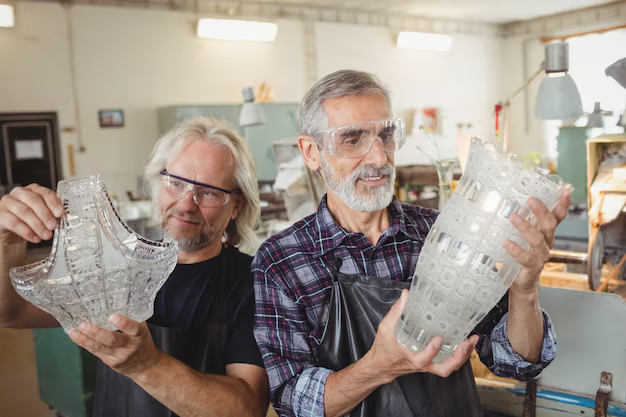Unveiling the Cold Truth: Who Really Invented the Refrigerator?
The refrigerator is a staple in households around the world, a marvel of modern engineering that has transformed how we preserve food. But the story behind its invention is as complex as the machinery itself. Delve with us into the intriguing history of refrigeration, exploring the key figures and innovations that led to this crucial household appliance.
🥶 The Emergence of Mechanical Refrigeration
Before diving into the heart of refrigerator invention, it’s important to consider what came before—the quest for artificial refrigeration. Prior to mechanical solutions, people relied on icehouses and cool cellars to preserve food. Mechanical refrigeration was born out of necessity, driven by the rapid industrialization and urbanization of the 19th century, which demanded better food preservation techniques.
The Quest for Cooling: Pioneering Efforts
The journey toward the modern refrigerator spans several decades and continents, involving many brilliant minds and varied approaches:
William Cullen (1755): Often credited with laying the groundwork for refrigeration technology, this Scottish physician demonstrated the first artificial refrigeration process. He used a pump to create a partial vacuum over a container of diethyl ether, creating a cooling effect as the ether boiled.
Oliver Evans (1805): This American inventor conceptualized the idea of a closed vapor-compression refrigeration cycle. However, his design was never built during his lifetime.
Jacob Perkins (1834): Known as the "father of the refrigerator," Perkins, an Anglo-American inventor, built on Evans' concept to construct the first mechanical refrigerator. His system used ether in a vapor-compression cycle.
John Gorrie (1842): A Florida physician who sought a method to cool his hospital during debilitating yellow fever outbreaks, Gorrie created an ice-making machine that applied compression to produce cooling. This innovation marks a pivotal moment in refrigeration history, although Gorrie faced skepticism during his time.
❄️ The Moment of Invention: James Harrison
Among the many aspiring inventors, James Harrison stands out as a pivotal figure. An Australian-British journalist and printing engineer by trade, Harrison is credited with building one of the first practical and commercially viable refrigeration systems.
James Harrison: The Frozen Trailblazer
Invention and Recognition: In 1856, Harrison constructed a mechanical ice-making machine using ether, which significantly contributed to the brewing and meat-packing industries. He further patented a vapor-compression refrigeration system, helping preserve food longer and more efficiently.
Industry Impact: Harrison’s invention made significant inroads in the brewing industry, where it revolutionized beer production by solving critical storage and preservation issues of the time.
🌍 Other Notable Contributors
While Harrison played a transformative role, the evolution of the refrigerator involved contributions from many inventors. These pioneers pushed the boundaries of scientific understanding and industrial application:
Carl von Linde: The German Innovator
- Ammonia and Refrigeration (1876): Carl von Linde’s development of an ammonia-based refrigerant laid down the foundation for more reliable and environmental-friendly refrigeration systems. This innovation led to safer and more effective refrigerators, setting the stage for wide-scale adoption.
Ferdinand Carré: The French Visionary
- Absorption Refrigeration (1858): Ferdinand Carré invented the ammonia-water absorption refrigeration system, a concept different from vapor-compression and useful in environments lacking electricity.
🚪 The Household Transition: Refrigerator for the Masses
It's fascinating to witness how a once-industrial invention found its way into households, transforming domestic life. The early 20th century heralded the age of domestic refrigerators, thanks to continued technological advancements:
General Electric (1911): The Rise of the Domestic Refrigerator
- The First Household Models: The Monitor-Top refrigerator, released in the late 1920s by General Electric, became the first widely adopted household refrigerator. Its practicality and efficiency set a new standard for modern homes.
Post-War Boom: Refrigerators Redefined
- Mid-20th Century Innovations: The post-World War II era saw rapid enhancements in refrigerator technology, including the introduction of freezers and automatic defrosting capabilities, further entrenching refrigerators as indispensable household items.
🔎 FAQs: Understanding Refrigeration Today
Here are some cool facts and practical insights about refrigerators that can help enhance your knowledge and appreciation:
Efficiency and Environment: Newer models focus on energy efficiency and eco-friendly refrigerants, reducing greenhouse gas emissions.
Choosing the Right Refrigerator: When selecting a refrigerator, consider size requirements, energy ratings, and technological features like smart integrations that suit your lifestyle.
Maintenance Tips: Ensure longer appliance life with regular maintenance; check door seals, clean condenser coils, and set optimal temperature settings.
🎯 Summary of Key Takeaways
Understanding the refrigerator's journey helps appreciate its significance in our daily lives. Here are standout points:
Multiple Contributors: Refrigeration’s history involves many inventors across different continents.
James Harrison’s Role: Built the first viable mechanical refrigeration system, proving instrumental to industrial applications.
Consumer Transition: From industrial usage to a fixture in homes, refrigerators have undergone significant evolution, driven by technological innovations and consumer needs.
Ongoing Innovations: Focus remains on energy efficiency and sustainability to align with modern environmental goals.
As we enjoy the convenience of a refrigerator today, it's essential to remember and appreciate the historical tapestry of scientific breakthroughs and relentless innovation that made it possible. Whether it's sipping a chilled drink or keeping our meals fresh, the story of the refrigerator is one of human ingenuity at its finest. 🧊

